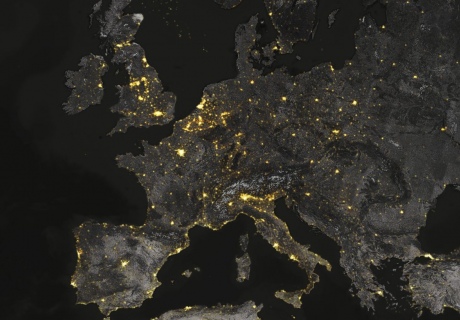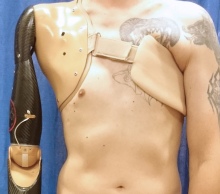Multi-million EU funding boost for Imperial researchers

Researchers from all four Imperial faculties attracted new ERC grants.
The European Research Council has invested more than €15 million in a series of new grants across all four Imperial faculties.
The prestigious awards will support cutting-edge research via starting, consolidator, advanced and proof of concept grants.
We are determined to maintain and grow our European ties.
– Professor Nick Jennings
Vice-Provost (Research)
They include work to develop wearable devices to tackle epilepsy, nanoscale sensors, new approaches to understanding obesity, and behavioural research into entrepreneurial clusters.
Since the Brexit vote last June, Imperial researchers have continued to apply for and win new grants from the European Union.
UK researchers remain eligible to apply for new European grants while the UK is a member of the EU. For projects that continue beyond the date when Britain leaves, the UK government will underwrite the payments of those awards.

Imperial has published more than 60,000 research papers with European partners within the last decade
It is currently unclear what relationship the UK will have with the ERC after Brexit, but Imperial is campaigning for continued access to EU research networks and the College has set out its firm commitment to future European collaborations.
International competitiveness
Professor Nick Jennings, Vice-Provost (Research) at Imperial College London, said: “This latest success from our researchers shows Imperial’s excellence and international competitiveness across all faculties.
“We are determined to maintain and grow our European ties. That is why we will keep applying for and winning European grants, and forging new connections across the continent.
“These exciting research projects will provide further evidence of the benefits of European research partnerships for Britain and Europe – not only for our scientific communities, but for wider society.”
Societal application
 One of the Imperial researchers to have received a grant is Professor Dario Farina, from Imperial’s Department of Bioengineering. Dr Farina has received a proof-of-concept grant from the ERC to further develop sensor technology for a robotic prosthetic arm (pictured) that detects signals from nerves in the spinal cord.
One of the Imperial researchers to have received a grant is Professor Dario Farina, from Imperial’s Department of Bioengineering. Dr Farina has received a proof-of-concept grant from the ERC to further develop sensor technology for a robotic prosthetic arm (pictured) that detects signals from nerves in the spinal cord.
Dr Farina says detecting signals from spinal motor neurons, instead of remnant muscle fibre, means that more commands can be directed to the sensors, which control the robotic prosthesis, making it more functional for users.
ERC 10th anniversary event: On 16 June Imperial will hold a special event with ERC President Jean-Pierre Bourguignon showcasing the College's past and present ERC-funded research.
[Main image credit: Thomas Angus. Europe image credit: mapbox.]
Article supporters
Article text (excluding photos or graphics) © Imperial College London.
Photos and graphics subject to third party copyright used with permission or © Imperial College London.
Reporter
Andrew Scheuber
Communications Division
Colin Smith
Communications and Public Affairs